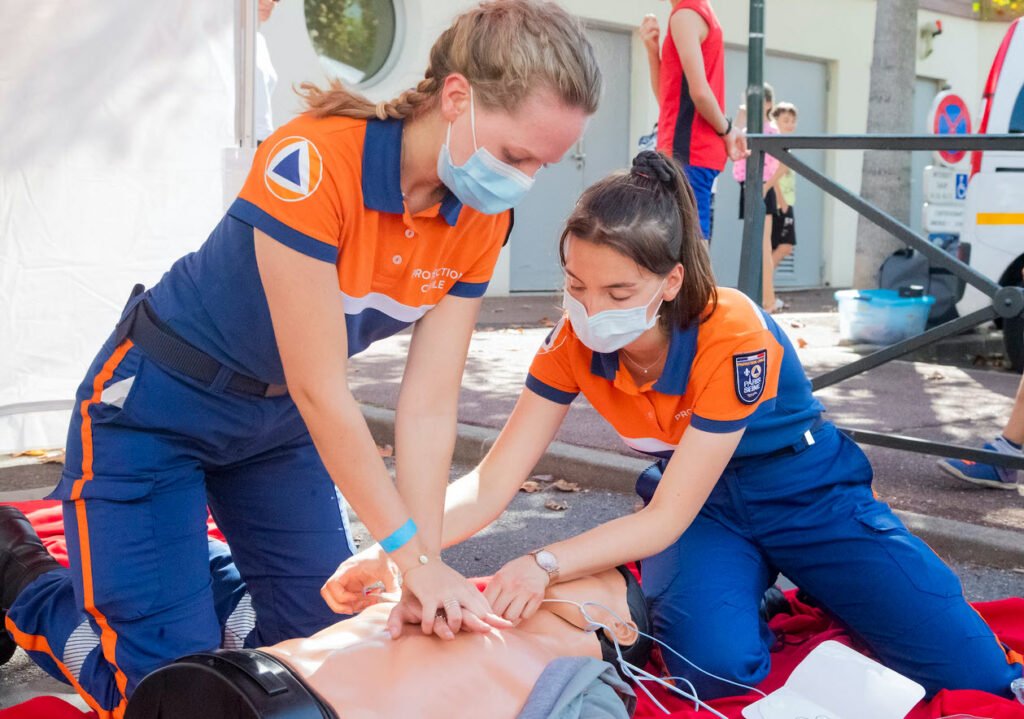
A heart attack is a medical emergency that requires immediate attention, and being able to recognize the warning signs can be a crucial step in seeking timely medical assistance. While the symptoms can vary from person to person, understanding the common indicators can be a lifesaving knowledge.
Here are the key warning signs associated with a heart attack:
1. Pressure or Squeezing Sensation
One of the hallmark symptoms of a heart attack is discomfort or a steady, squeezing pressure in the chest. This sensation can range from a mild ache to a severe, crushing, or burning pain. The pain may originate from the center of the chest and may radiate down one (usually the left) or both arms. It can also extend to the shoulders, neck, jaw, or back.
2. Gasping and Shortness of Breath
Individuals experiencing a heart attack may struggle to breathe, gasp for air, or feel an overwhelming sense of shortness of breath. This symptom is often accompanied by a feeling of heaviness in the chest.
3. Heart Palpitations or Irregular Heartbeat
Some individuals may perceive heart palpitations or an irregular heartbeat during a heart attack. This sensation is often described as a fluttering or pounding in the chest.
4. Difficulty in Breathing
In conjunction with chest discomfort, individuals may experience difficulty in breathing, persistent palpitations, heavy perspiration, sudden dizziness, light-headedness, and/or fainting.
5. Nausea or Vomiting
Symptoms such as nausea or vomiting may accompany a heart attack. It’s important to note that these symptoms can sometimes be mistaken for indigestion, leading to delayed recognition of a cardiac event.
6. Changes in Skin Color and Texture
The skin may undergo changes during a heart attack. This can include pale or bluish skin and lips, as well as coolness and clamminess to the touch.
7. Emotional and Mental Signs
Individuals experiencing a heart attack may report a sense of anxiety or impending doom. Shock and unconsciousness are also possible signs, emphasizing the severity of the cardiovascular event.
Recognizing these warning signs is critical for prompt medical intervention, as early treatment can significantly improve the chances of recovery. If you or someone around you exhibits these symptoms, it is essential to call emergency services immediately. While chest pain is a classic symptom, not all heart attacks present with this specific type of pain, and other symptoms like shortness of breath or nausea should not be ignored.
Heart attacks can happen to anyone, regardless of age or gender, so staying informed about these warning signs is crucial for maintaining cardiovascular health. Regular check-ups, a heart-healthy lifestyle, and awareness of risk factors can also contribute to proactive heart care. Remember, when it comes to heart attacks, time is of the essence, and swift action can make a significant difference in the outcome.
You may also like:- 5 Signs of Hormonal Imbalance in Women Suffering from PCOS
- Top Effective Tips To Achieve Safe and Sustainable Fast Weight Loss
- Empowering Students: Applying ABA Techniques In The Classroom
- Assessing Cancer Treatment: Tools And Techniques For Monitoring Efficacy
- Eye Doctors’ Contributions To Long-Term Vision Clarity
- Understanding Neurosurgeons: Specialists In Brain And Spinal Cord Health
- Common Causes of Chest Pain You Should Know
- Top 10 Weight Loss Myths: Don’t Fall Victim to Them
- Incorporating Fitness into a Busy Lifestyle for Effective Weight Loss
- Low GI Alcohol and Healthy Food Choices for Sustainable Weight Loss








